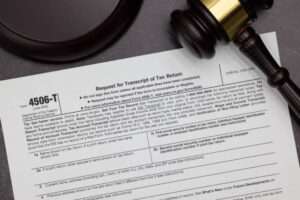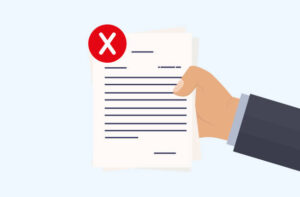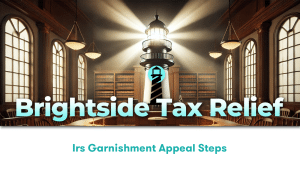Filing for bankruptcy is a difficult and draining process. People often feel ashamed, scared, or confused. If you find yourself with no other options, bankruptcy can be a good way to clear out old debts, change financial patterns, and most importantly get a fresh start. Here is everything you need to know about filing for bankruptcy.
Note: Depending on what type of taxes you owe, you might not be able to wipe out your back taxes in bankruptcy proceedings. Our firm specializes in tax resolution and back tax debt settlements with the IRS. So if you’re considering bankruptcy in part because of your back tax burdens, reach out to us today for more information on how you can get tax relief. Call us at (800)730-4313!
Who Should File for Bankruptcy?
If you owe money to a creditor and cannot repay it, you can file for bankruptcy. Businesses and individuals are eligible; however, there are caveats. If you have filed for bankruptcy once before, there is a waiting period before you may file again. After filing for Chapter 7 bankruptcy, you cannot claim bankruptcy again for eight years. After filing for Chapter 13 bankruptcy, you must delay a second claim for at least two years.
What Types of Debt Can I Discharge Through Bankruptcy?
You can discharge most types of debt through bankruptcy, including medical debt, credit card debt, payday loans, and mortgage debt.
Certain types of debt cannot be discharged through bankruptcy, meaning that you will still need to repay these debts even if everything else is forgiven. Debts that cannot be wiped out in bankruptcy include spousal support, child support, student loans, and back taxes in most cases.
Any debt you take on after you’ve filed for bankruptcy is ineligible to be discharged through the filing since you did not have the debt when you asked for debt relief.
Why is Filing Bankruptcy Helpful?
When you can’t keep up with the bills, you’re under a high level of stress. Bankruptcy is never a first option for people; many have tried things like getting extra jobs, selling unwanted possessions, or asking family members for loans before arriving at bankruptcy as their best option for debt relief.
By wiping out debts, bankruptcy reduces stress immediately. Collectors are not allowed to come after individuals who are going through bankruptcy, so threatening phone calls and letters will end immediately.
A Chapter 13 bankruptcy can promote good financial habits, because in this form of bankruptcy, some amount of debt is repaid under a plan. By helping to increase financial literacy and instilling good financial habits, this partial repayment can keep people in the black once debts are discharged.
The biggest downside to filing for bankruptcy is that it impacts your credit, so you may find it difficult to take out loans for up to ten years after the bankruptcy. Your credit score also impacts things like the interest rate offered on loans and your ability to pass a tenant screening, so there are other ramifications to consider.
If you’re not sure whether a certain debt will be forgiven or which type of bankruptcy is right for you, there are resources to help you explore your options, such as credit counselors. If you are thinking of filing for bankruptcy, it’s helpful to get a counselor’s opinion on your specific circumstances and what to expect after filing.
If you have back tax debt, we highly recommend readers to reach out to our firm first. Our clients never have to talk to the IRS, and tax resolution through our firm can save you money and time in the long run. You might also be eligible for other IRS relief programs or get your penalties reduced or removed. Reach out to our firm today for a consultation. Call us at (800) 730-4313!




